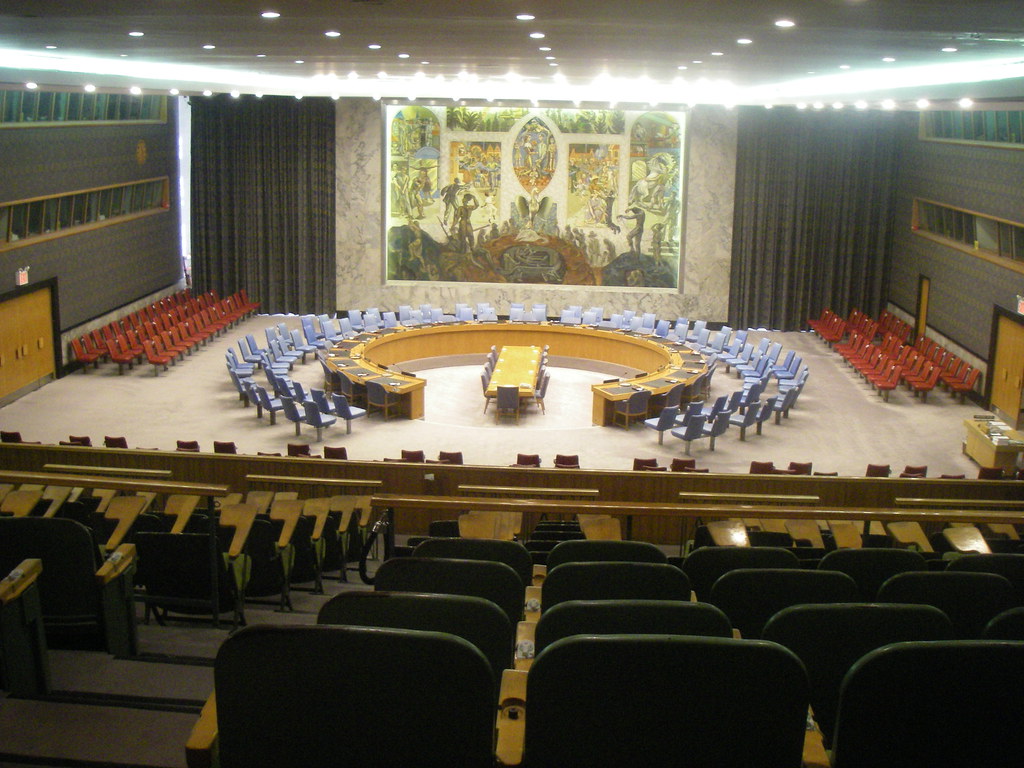 |
| UN Security Council (Image: Flickr User - FabienA380) |
By Jack Hands
The UN is forcing the DPRK’s abysmal record higher up the international political agenda.
Last week, coincidentally on International Human Rights Day, the UN Security Council (UNSC) discussed the human rights situation in North Korea. Such a discussion, only the second of its kind, was put forward by the U.S. after it added “human rights abuses in North Korea” to the permanent UNSC agenda and follows on from the UN Commission of Inquiry report into rights violations within the country which Michael Kirby, the Chair of the report described as ”human rights abuses on a scale without parallel in the contemporary world,’ comparable to the atrocities of Nazi Germany.”
Last week’s discussions focused on political prison camps, serious food insecurity, and gender-based violence and discrimination, including against women who are returned to the DPRK after having fled the country. Any public discussion on DPRK’s record is highly significant, with Pyongyang traditionally being extremely sensitive to commentary on its widely known abuses, including the alleged internment of up to 120,000 of its own citizens, using state sovereignty as a way to sidestep answering any questions.
The focus on North Korea’s human rights record within the UN has been led by the U.S. and is a change of tactics in pressuring Kim Jong-un. By moving rights abuses as a permanent item on the Security Council agenda, the U.S. aims to further pressure North Korea into change, or at least further morally discredit the Kim dynasty in the eyes of the world. While serious rights violations have been known for some time, North Korea has often threatened to leave any negotiations on its ballistic missiles program if the issue is raised.
Read the full story at The Diplomat
